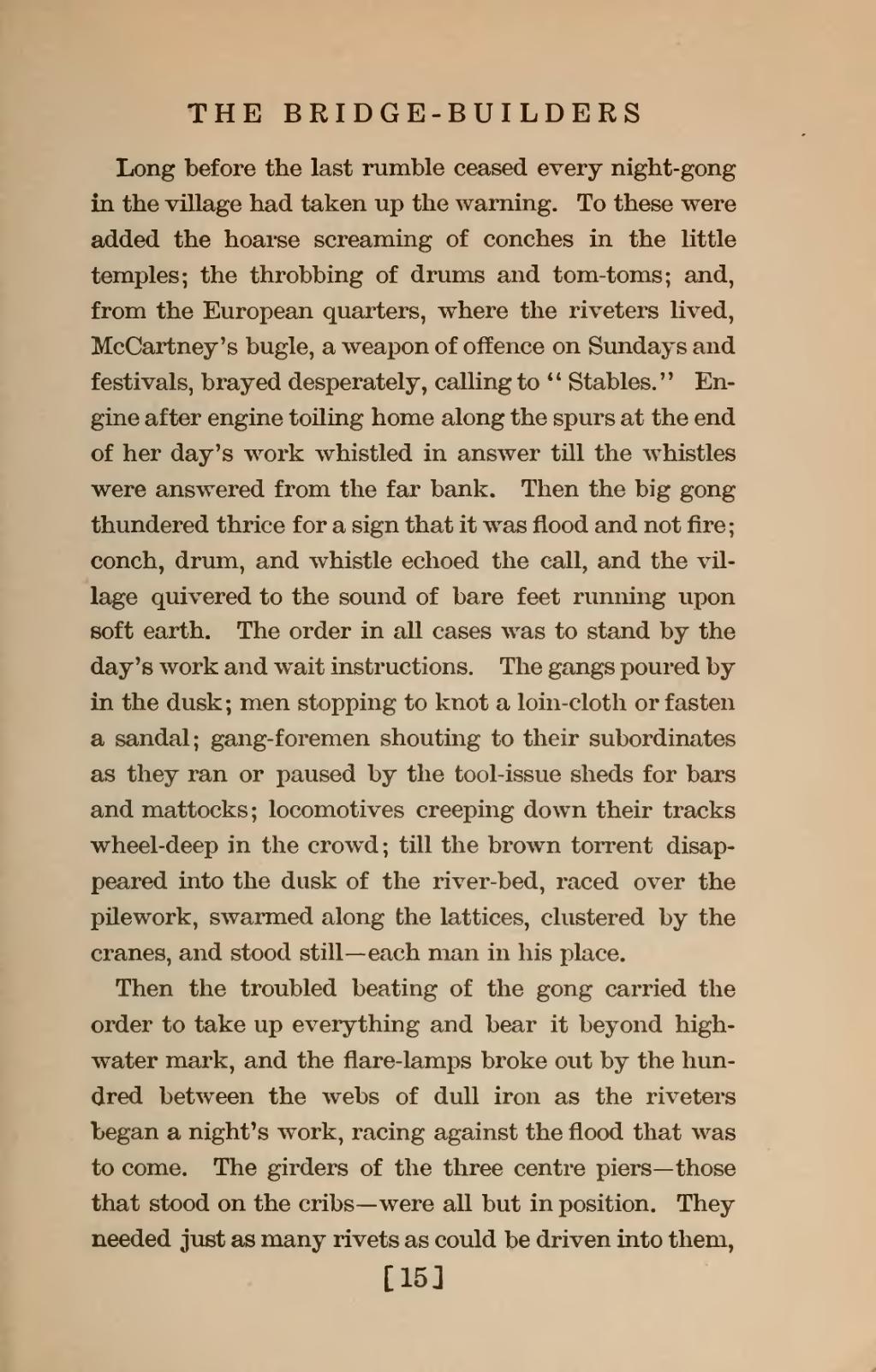The Bridge-Builders
Long before the last rumble ceased every night-gong in the village had taken up the warning. To these were added the hoarse screaming of conches in the little temples; the throbbing of drums and tom-toms; and, from the European quarters, where the riveters lived, McCartney's bugle, a weapon of offence on Sundays and festivals, brayed desperately, calling to “Stables.” Engine after engine toiling home along the spurs at the end of her day's work whistled in answer till the whistles were answered from the far bank. Then the big gong thundered thrice for a sign that it was flood and not fire; conch, drum, and whistle echoed the call, and the village quivered to the sound of bare feet running upon soft earth. The order in all cases was to stand by the day's work and wait instructions. The gangs poured by in the dusk; men stopping to knot a loin-cloth or fasten a sandal; gang-foremen shouting to their subordinates as they ran or paused by the tool-issue sheds for bars and mattocks; locomotives creeping down their tracks wheel-deep in the crowd; till the brown torrent disappeared into the dusk of the river-bed, raced over the pilework, swarmed along the lattices, clustered by the cranes, and stood still—each man in his place.
Then the troubled beating of the gong carried the order to take up everything and bear it beyond high-water mark, and the flare-lamps broke out by the hundred between the webs of dull iron as the riveters began a night's work, racing against the flood that was to come. The girders of the three centre piers—those that stood on the cribs—were all but in position. They needed just as many rivets as could be driven into them,
[15]

